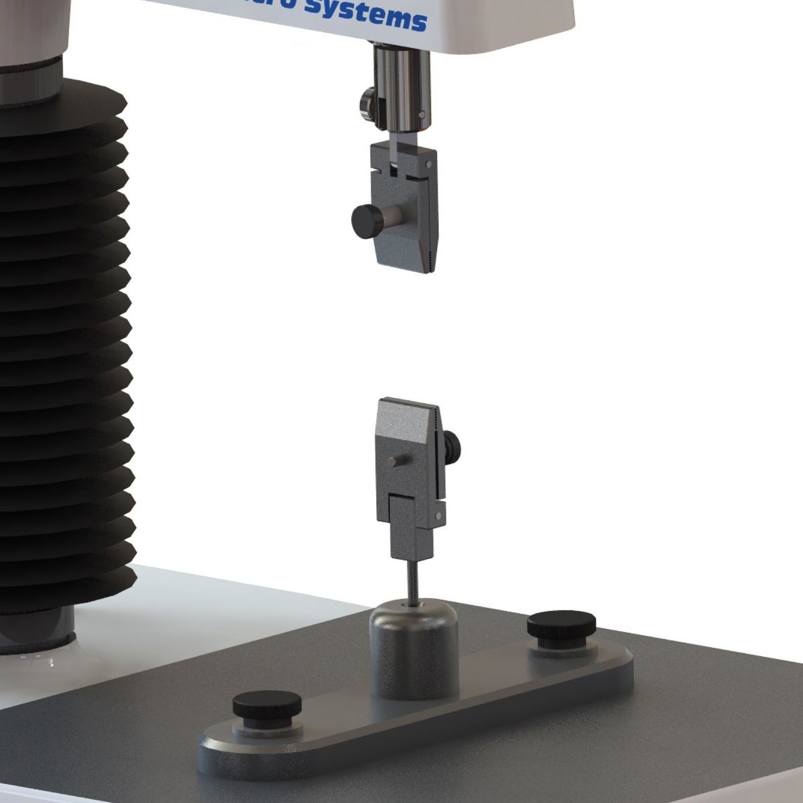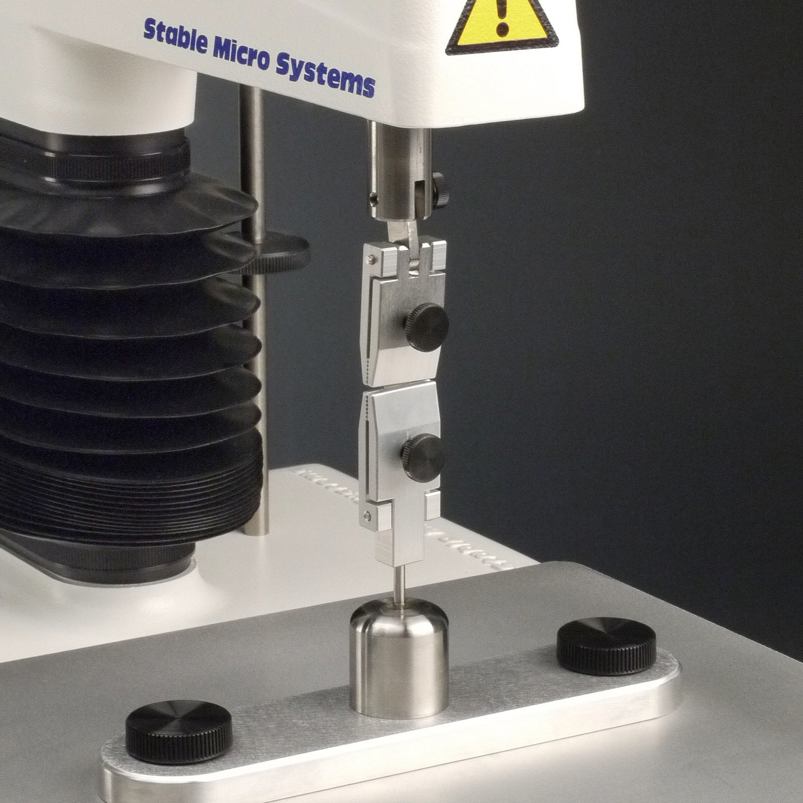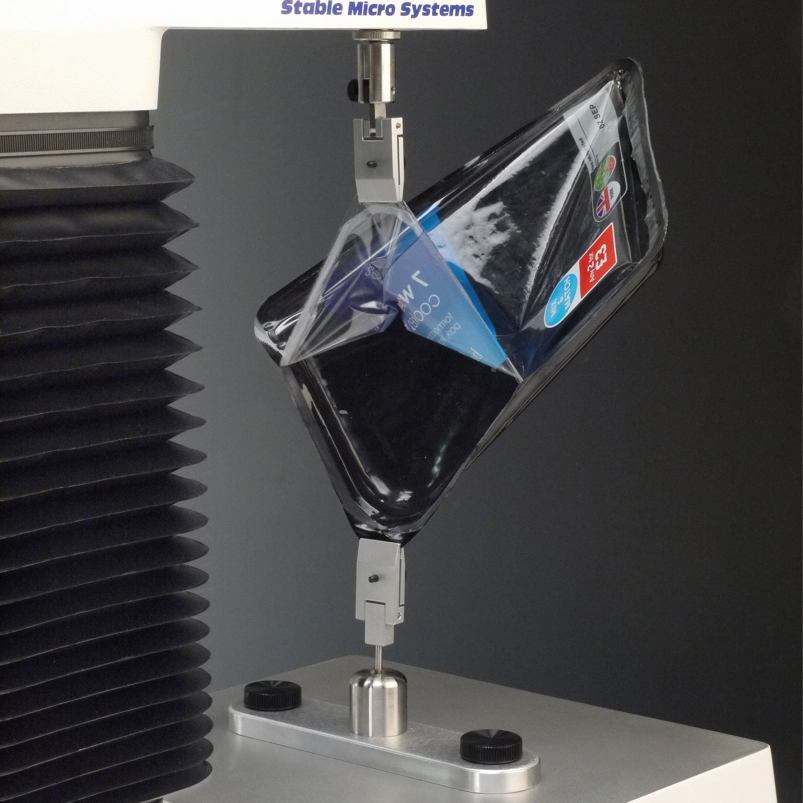Product overview
Packaging must be tough, tear-resistant and therefore provide sterility during transport and handling until the moment its contents are removed for use. It must be easy for the consumer to access without causing splitting of the packet or spilling of its contents when opening. A tensile test can assess both seal strength and integrity or provide a measure of the tensile strength of a material.
These lightweight grips have been designed for the gripping of thin materials whilst providing a good degree of rotational flexibility during the tensile test. This allows for product distortion which may be necessary for unevenly adhered products like packaging and makes loading of difficult samples easier.
These grips are ideal for the assessment of the peeling characteristics of samples such as packaged meats.
How do the Articulated Tensile Grips work?
Ideal sample form
Packaged food with peelable film.
Benefits and limitations
- Rotational flexibility allows for natural product distortion which is usually limited by fixed grips
- Peel distance limited to maximum stroke of the instrument
Technical information
Installation
Full installation instructions are provided within the Education Zone of the latest Exponent/Connect software version and on the technical information sheet accompanying this product.
Chemical compatibility
Stable Micro Systems probes and attachments are commonly made from four materials: anodised aluminium (AA6082 T6), stainless steel (316 T), Delrin (acetyl copolymer) and Perspex (polycarbonate).
In general use, probes and attachments made from these materials will be suitable for testing food products and inert non-food materials.
The four materials listed above are not universally resistant to all types of chemicals and as such the compatibility of the probe/attachment material with the product (to be tested) must be established to prevent damage to the probes and attachments. If the compatibility of the product with the probe is unknown to the customer then the chemical information about the product (Material Safety Data Sheet or Product Data Sheet) should be submitted to Stable Micro Systems. Stable Micro Systems will then assess the suitability of the probe/attachment material for use with the product and advise accordingly. If this advice is not sought then Stable Micro Systems will not accept liability for probes/attachments damaged by chemical attack from the product being tested.
Cleaning and maintenance
All probes and attachments may be cleaned in warm (or hand hot) water using a mild detergent. A soft brush may be used but abrasive cleaning aids should be avoided. Stable Micro Systems products should not be microwaved or cleaned in a dishwasher.
Screw threads should be lightly lubricated after drying using a light lubricant, e.g. petroleum jelly, mineral oil. This will aid the fitting and unscrewing of the item. Each component of a probe or attachment should be wrapped separately when stored, to avoid scratching or chipping. This will safeguard against any unnecessary damage to the accessory.




